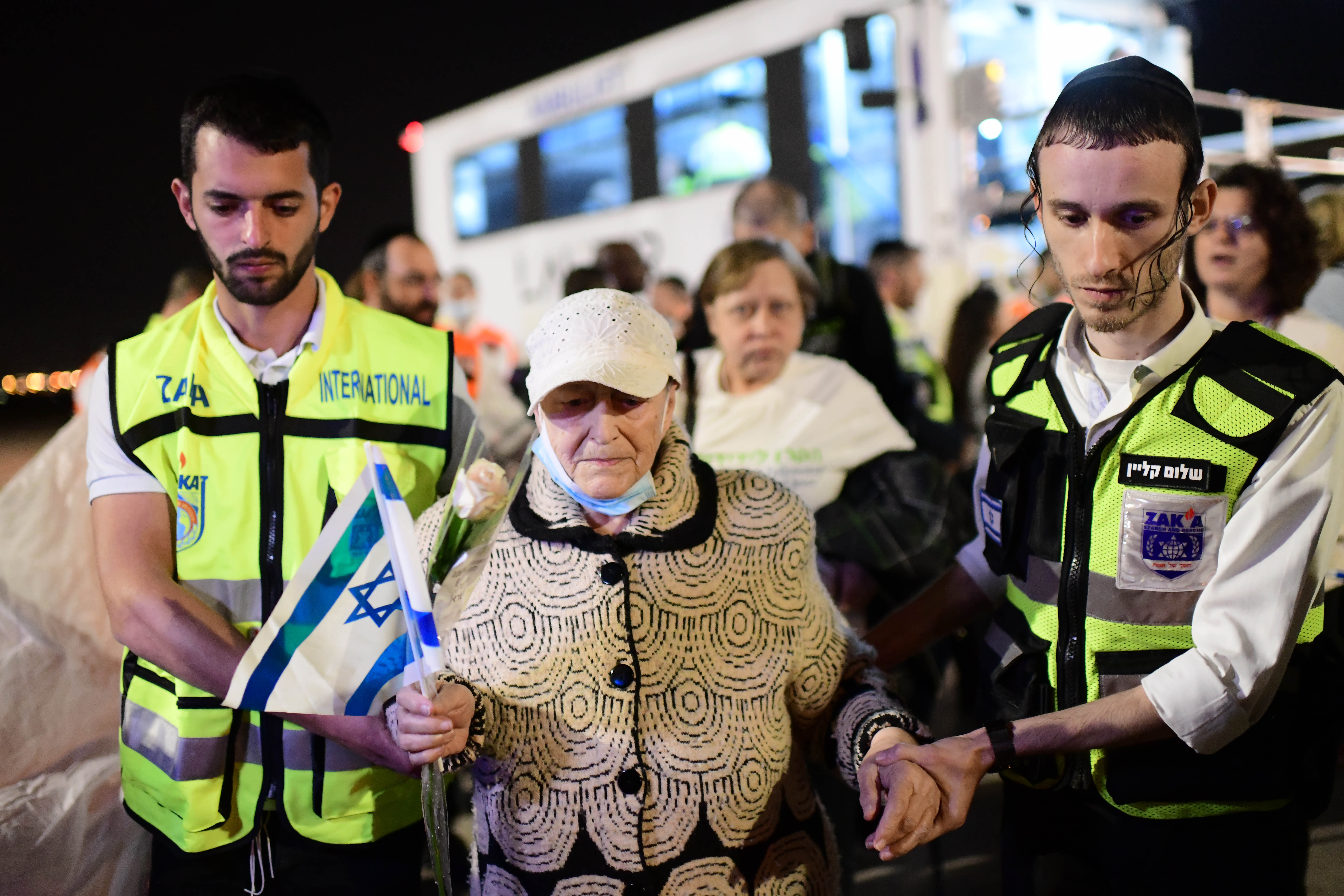click to dowload our latest edition
CLICK HERE TO SUBSCRIBE TO OUR NEWSLETTER


Published
2 years agoon
By
Steven GruzdIt’s almost six months since the Russian invasion of Ukraine began on 24 February. Israel has opened its doors and heart to 32 000 Ukrainian and Russian Jews who wanted to move to Israel from this war zone. Keren Hayesod (the Foundation Fund) was at the heart of the biggest aliya operation in decades. Its world chairperson, Sam Grundwerg, explained why and how it was done on 3 August at an event organised by the South African Zionist Federation in Johannesburg.
“Without existing communal infrastructure in Ukraine, the rescue of its Jews would have been impossible,” Grundwerg said, referring to the efforts of 40 shlichim (emissaries from Israel on the ground in Ukraine) and 80 local employees. He also said the work of locally based organisations like Chabad was invaluable.
Since 24 February, Israel has taken in 32 000 Jews from Belarus, Russia, and Ukraine. Before the COVID-19 pandemic, it was absorbing 35 000 olim from the entire world per annum. “They need resources beyond their arrival,” Grundwerg said, “for learning Hebrew, places to live, and jobs.”
“This was a very different kind of aliya. It was mostly women, children, and the elderly. Men aged 18 to 60 are forbidden to leave Ukraine as they are conscripted into fighting the Russians,” Grundwerg said.
In March 2022, he visited an abandoned shopping mall in neighbouring Poland, filled by thousands fleeing Ukraine. “It was a human tragedy,” he said, “impossible to comprehend. I felt their deep, profound sadness, especially in their separation from the men in their families.”
Keren Hayesod raised more than $22 million (R365.3 million) from Jewish communities worldwide for the campaign to rescue Ukrainian Jews. Working closely with Israel’s ministries of foreign affairs and aliya and the Sochnut (Jewish Agency), it set up rescue centres at five different borders with Ukraine – in Hungary, Moldova, Poland, Romania, and Slovakia – to fast-track the processing of Jewish refugees for travel to Israel. Temporary consulates were set up in hotels in these countries. Due to shelling in the capital, Kyiv, the Israeli embassy had to move west to Lviv and then over the border into Poland.
“This wasn’t my first rodeo,” Grundwerg said. “Organisations can step on each other’s toes or trip each other up. But this time, there were no egos. We worked together to get the job done.
“I met a 90-year-old Ukrainian Holocaust survivor in Poland,” said Grundwerg. “He recalled being bombed 80 years ago, surviving that, and was now going through a war again. The difference is that now there’s a state of Israel to take care of him. You can’t witness something like this without it profoundly affecting you. It showed me how am Yisrael is one people, and why Keren Hayesod is still relevant.”
“Israel has existed a sovereign state for almost 75 years,” Grundwerg said. “That’s not long. It’s a few generations. After 2 000 years, Jews have a voice in public forums, we have our own diplomats to speak up. We have a sword and shield to defend ourselves, and we have a refuge. I think we’d forgotten this for a bit. It seemed outdated. It has been needed in 2022.”
Grundwerg said one the most moving experiences was welcoming a plane of orphans from Ukraine on the tarmac of Ben Gurion Airport.
In April, Grundwerg hosted a Ukrainian family at his Pesach seder table – a mother, two daughters, and a father (permitted to leave Ukraine as he had an Azerbaijani passport). “They had little knowledge of Judaism, but it was the most emotional seder. They taught us a lesson about what freedom means.”
In terms of eligibility for this aliya, the requirement was having one Jewish grandparent, the standard set in Israel’s Law of Return, and the measure identifying Jews in World War II by the Nazis. The estimate is that before the war, there were about 50 000 to 60 000 Jews active in Ukrainian Jewish communities, and about 150 000 more with at least one Jewish grandparent. There are no accurate estimates of the number of Jews killed in Ukraine, Grundwerg said.
“Most of those who came to Israel are from very secular families,” he said. “But we’re seeing the younger generations more connected to Yiddishkeit. It varies.”
Grundwerg noted that the relationship between Israel and diaspora Jewish communities had changed. “We’re more equal partners now. Jewish communities need a strong Israel, and Israel needs strong Jewish communities around the world.” This aliya has proven that once again.
